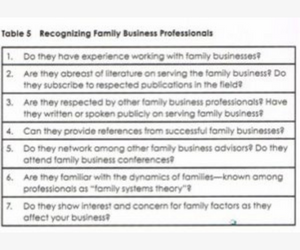Candida Treatment for Simple and Recurrent Cases
A Large Number of Women Will Experience a Candida Infection in their Lives
In the United States, 75% of women will have a vulvovaginal Candida infection during their lifetimes. In any one year, this means 13 million women will have the vaginal itching, burning, swelling, painful urination, and painful intercourse associated with yeast infections. Candida Albicans is the species most often causing these infections. It is not considered a sexually transmitted disease, although I’ve had success treating my patient as well as her partner.
Candida Infections are Divided Between “Simple” and Recurrent”
In 95% percent of Candida cases, the infection will occur less than four times in a year. We categorize these as cases as simple Candida infections. Simple Candida Infections are easily treated and their symptoms are generally mild or moderate. However, 5% of women will develop recurrent Candida. They’ll experience four or more infections in the course of a year. Their symptoms can be very uncomfortable and the treatment is more difficult than that of the simple Candida infection. In the near future, the definition of “simple Candida infections” and “recurrent Candida infections” may be changing. Simple infections may be defined as less than three yeast infections in the course of year. Recurrent infections will be three or more infections during a year.
Treating Simple Candida Infections is Straightforward
In the case of a healthy woman who is not pregnant, a single oral dose of 150 mg of fluconazole is often used. Topical creams can be used according to the instructions on the packaging labeling. Vaginal tablets or suppositories may be less irritating than topical creams. Longer-use products may be less irritating than one-day products. Recently, the US Food and Drug Administration(FDA) issued a warning regarding the use of fluconazole in pregnancy. At this time, only topical antifungals should be used during pregnancy.
Treating Recurrent Candida Infections is More Complicated
Recurrent infections may come from a non-albicans species. In roughly 10% -20% of women with recurrent vulvovaginal candidiasis, Candida glabrata and other non-albicans species are responsible. After culturing to identify the species involved, it is helpful to look up which species are sensitive to which antifungals. A prescription for 150mg by mouth every 3 d days for 3 times, followed by 150 mg fluconazle weekly for up to 6 months may be issued if the species is sensitive to fluconazole, and there are no contraindications to that medication in the patient being treated. We know which species are sensitive to which antifungal medications and so sensitivity testing is generally not needed. Sensitivities are indicated on occasion. We’re seeing some antifungal resistance and effective treatment may require compounded medications.
The ISSVD iPhone App Can Help
The International Society for the Study of Vulvovaginal Disease (ISSVD) created an iPhone/iPad App that can help with diagnosis and treatment of Candida infections. In the past, we haven’t been treating Candida as effectively due to lack of information. This app is designed to make the newest treatment information easily accessible and available. It includes medications and dosage recommendations for 10 different types of Candida. There is a patient information sheet that you can click on and send to your patients. It also gives directions for compounded medications. An important feature of the yeast app is photographs that help with diagnosis. We hope the app will be a benefit in Third World countries, as it is not exclusive to the United States. To find the app, on your iPhone or iPad, go to the App Store and type in ISSVD. The app costs $4.99.
Desquamative Inflammatory Vaginitis Mimics a Candida Infection
Occasionally you’ll find a patient who complains of vaginal discharge who thinks that she may have a Candida infection, but on wet prep and culture, there’s no Candida present. Her problem may be desquamative inflammatory vaginitis (DIV), a chronic purulent vaginitis with dyspareunia and irritation on the vestibule/vagina. It’s mainly an inflammatory condition as opposed to a Candida infection. It’s a diagnosis of exclusion, when other causes of purulent vaginitis have been excluded. The vaginal pH is elevated and there are inflammatory cells and parabasal cells on wet prep. Although we don’t know the etiology and pathogenesis, we do know that anti-inflammatory medications help. The recommended treatment is either local vaginal clindamycin, vaginal corticosteroids, or these two agents combined. As this may be a chronic immune condition, consider maintenance treatment since relapses are common.
Search Blogs
Latest Posts
Ukraine’s Mental Health Crisis & AI Solutions
https://aablanco.substack.com/p/ukraines-mental-health-crisis-and?utm_source=post-email-title&publication_id=1780826&post_id=153290811 Publication –aablanco.substack.com
Tackling Trauma Through Artificial Intelligence
https://www.psychologytoday.com/us/blog/to-end-human-trafficking/202411/tackling-trauma-through-artificial-intelligence Publication –psychologytoday.com
The Diplomat Mitzi Perdue Nantucket Ukraine
https://www.n-magazine.com/the-diplomat-mitzi-perdue-nantucket-ukraine Publication –n-magazine.com
An Explosive Choice: Landmines and Ukraine
https://cepa.org/article/an-explosive-choice-landmines-and-ukraine/ Publication –cepa.org
Subscribe to Updates
About Author

Mitzi Perdue is the widow of the poultry magnate, Frank Perdue. She’s the author of How To Make Your Family Business Last and 52 Tips to Combat Human Trafficking. Contact her at www.MitziPerdue.com
All Articles
Choosing Your Family Business Advisors
Choosing Your Family Business AdvisorsKnow when you need to get help. People often ask me the secret of Frank Perdue’s success. He had to do hundreds of things right. He had to be able to see the big picture as well as be detail oriented. But there was something else:...
Substance Abuse and the Family Business
Substance Abuse and the Family Business When it comes to substance abuse, members of a family business are no more immune than the rest of the population. However, as family business advisor Loyd Rawls points out, the consequences can be more dire because serious...
Infertility: Advances In Treatment
Infertility: Advances In TreatmentAge and Infertility are Linked Infertility affects roughly 12% of women. By the time a woman is in her early 40s, her chance of infertility rises to 20%. It’s a particularly difficult problem for the older woman because the quality...
Career Advice for Young People: Shut Up and Listen!
Career Advice for Young People: Shut Up and Listen! Jack Tatem, a former Perdue Vice President, has some serious advice for young people. It’s simple and it can make a big difference in your career. It has to do with listening. The advice is, “Shut up and listen!” He...
Embedding The Family’s Values by Creating an Ethical Will
Embedding The Family’s Values by Creating an Ethical WillOriginal Article written by Mitzi can be found here. Much as I admired Frank Perdue for his success with his family poultry business, I admired him even more for his success as a family man. Since the happiness...
6-Step Solution to Almost Any Problem
6-Step Solution to Almost Any Problem 1. Describe the Problem. Preferably do this in writing. The act of putting the problem into words can clarify your thinking. 2. Write Down the Obstacles. Although I’m a fan of positive thinking, I’m also a fan of research...





